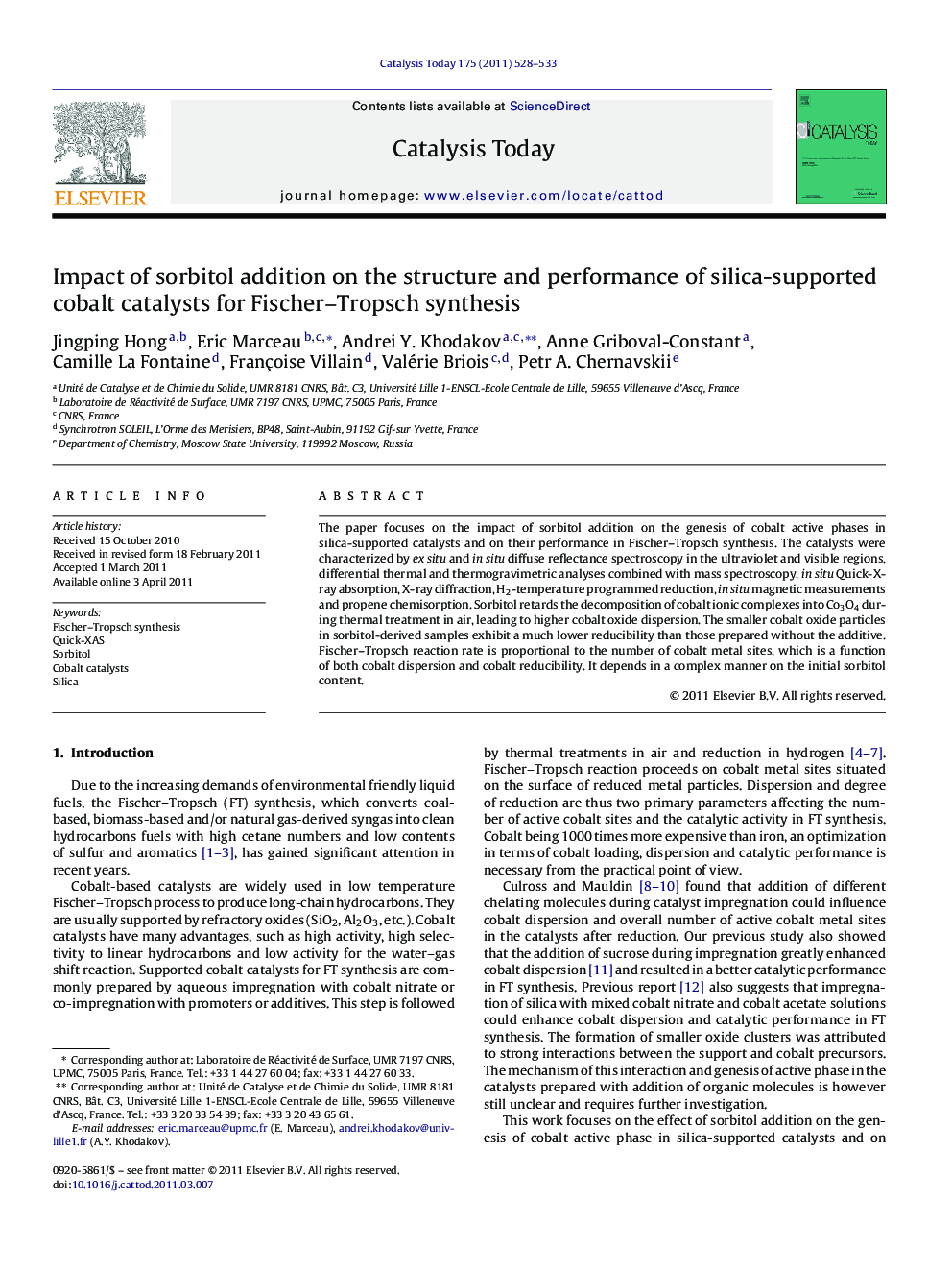| Article ID | Journal | Published Year | Pages | File Type |
|---|---|---|---|---|
| 55786 | Catalysis Today | 2011 | 6 Pages |
The paper focuses on the impact of sorbitol addition on the genesis of cobalt active phases in silica-supported catalysts and on their performance in Fischer–Tropsch synthesis. The catalysts were characterized by ex situ and in situ diffuse reflectance spectroscopy in the ultraviolet and visible regions, differential thermal and thermogravimetric analyses combined with mass spectroscopy, in situ Quick-X-ray absorption, X-ray diffraction, H2-temperature programmed reduction, in situ magnetic measurements and propene chemisorption. Sorbitol retards the decomposition of cobalt ionic complexes into Co3O4 during thermal treatment in air, leading to higher cobalt oxide dispersion. The smaller cobalt oxide particles in sorbitol-derived samples exhibit a much lower reducibility than those prepared without the additive. Fischer–Tropsch reaction rate is proportional to the number of cobalt metal sites, which is a function of both cobalt dispersion and cobalt reducibility. It depends in a complex manner on the initial sorbitol content.
Graphical abstractFigure optionsDownload full-size imageDownload high-quality image (130 K)Download as PowerPoint slideHighlights► Addition of sorbitol during impregnation with cobalt nitrate enhances cobalt dispersion in silica-supported catalysts. ► Sorbitol retards decomposition of cobalt ionic complexes into Co3O4 during thermal treatment in air. ► The enhancement in cobalt dispersion and decrease in cobalt reducibility produce contrasting effects on the total number of cobalt sites active in the FT reaction.
